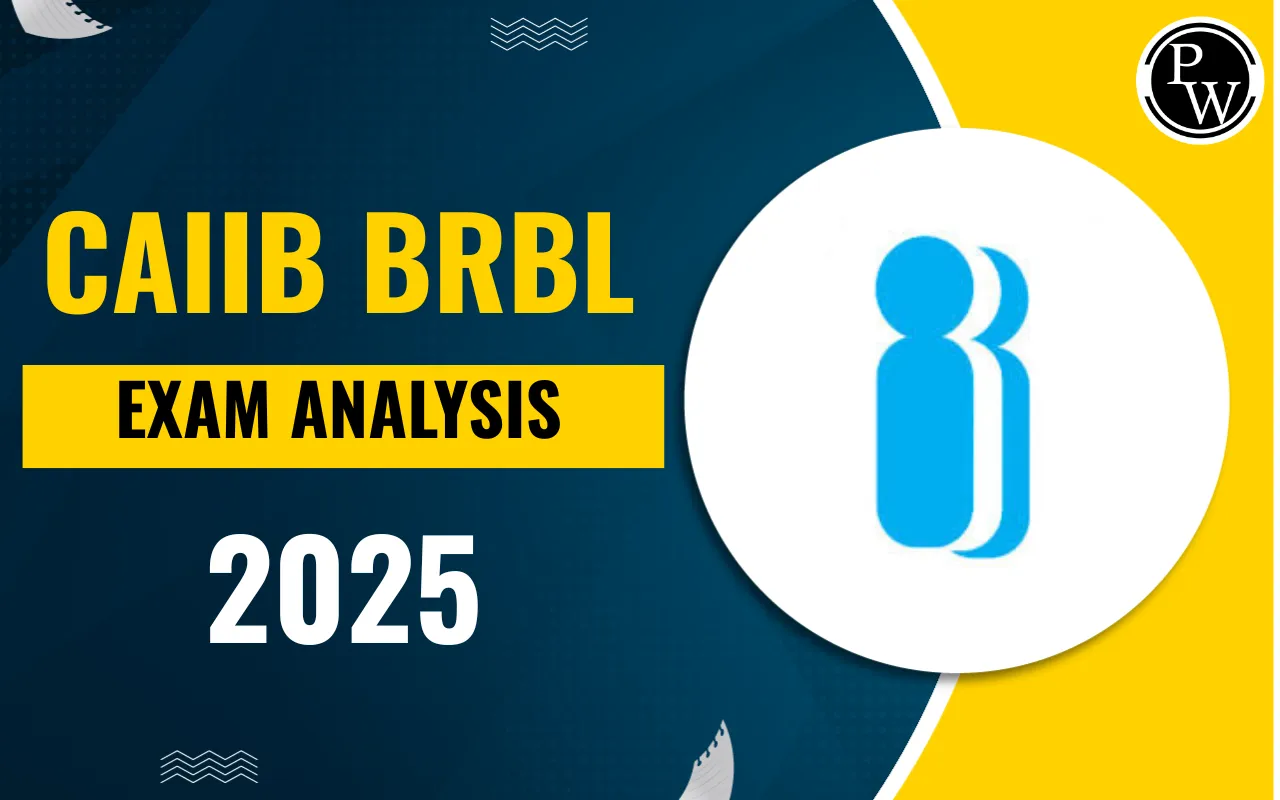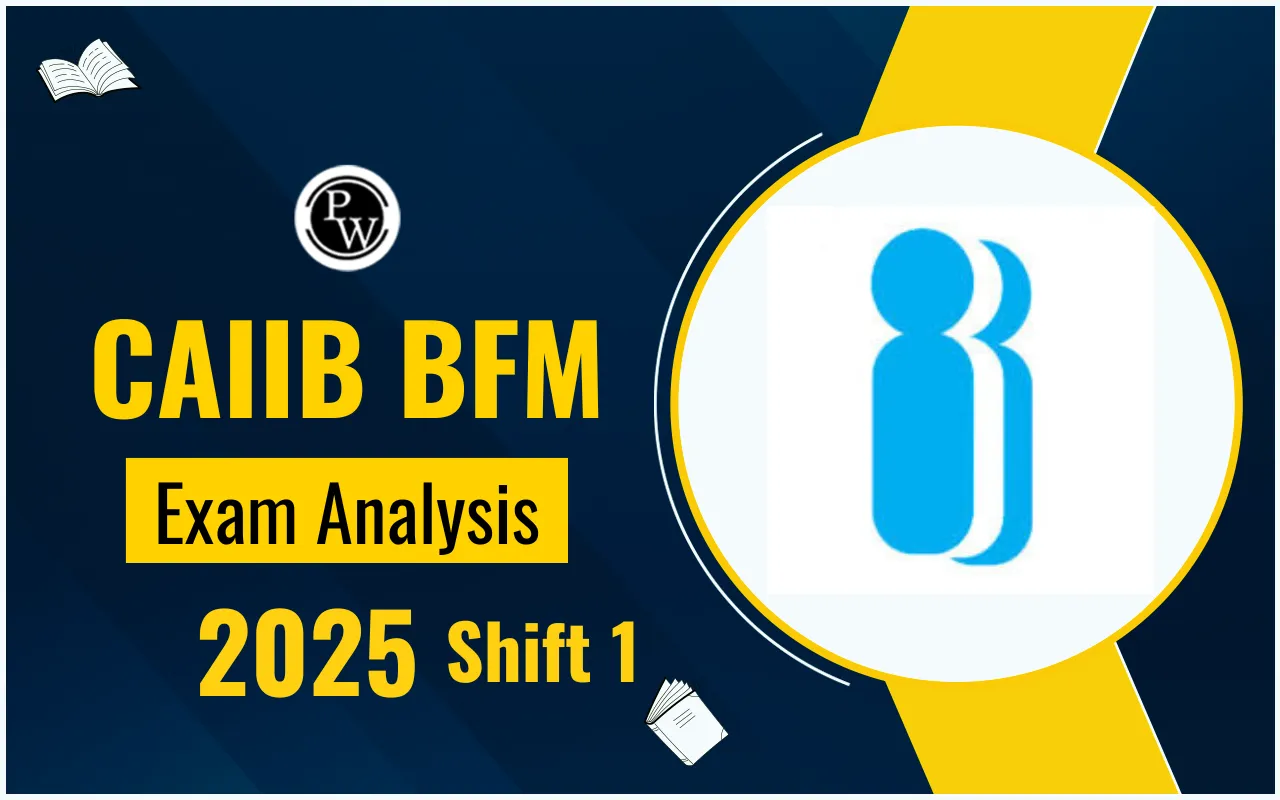
What is the Role of Foreign Exchange Markets?: The foreign exchange market, also known as the forex market, serves as the global hub for trading currencies. It facilitates the exchange of one country’s currency for another, influencing exchange rates worldwide. Operating 24/5 across major financial centres, it involves various participants such as banks, dealers, companies, and investment firms. Through electronic networks, currencies are bought and sold continuously.
Moreover, banks play a significant role in providing essential services like bill discounting and fund transfers. Understanding the foreign exchange market is essential for comprehending global currency dynamics and facilitating international trade and investment. Here, prospective JAIIB/CAIIB candidates and banking professionals can discover important details regarding the role of foreign exchange markets, including their operations, functions, and more.Foreign Exchange Market Meaning
The Foreign Exchange Market, or forex market, is a global, decentralized marketplace where currencies are bought and sold. It is the largest and most liquid financial market in the world, with daily trading volumes exceeding $6 trillion. This market plays a crucial role in facilitating international trade and investment by allowing businesses to convert one currency into another. The forex market operates 24 hours a day, five days a week, with trading occurring in major financial centres worldwide. Various factors drive the market, including economic data, geopolitical events, and central bank policies. The exchange rate, which reflects the value of one currency compared to another, is determined by supply and demand within the market. Understanding the role of foreign exchange markets is essential for anyone involved in global business and finance.Role of Foreign Exchange Markets
The foreign exchange market plays a vital role in global finance by facilitating the conversion of currencies and supporting international trade. Its main functions include transfer, credit, and hedging, each of which is crucial for smooth economic transactions between countries. Here, we've provided detailed information on the Role of Foreign Exchange Markets with examples:1. Transfer Function:
The primary function of the foreign exchange market is to enable the conversion of one currency into another, facilitating the transfer of purchasing power between nations. This is achieved through various credit instruments like telegraphic transfers, bank drafts, and foreign bills of exchange. For example, if a Japanese company buys products from Germany and needs to pay in euros, the forex market helps convert yen to euros. This transfer of funds allows businesses to settle international transactions efficiently.2. Credit Function:
Another key role of the foreign exchange market is to provide credit for international trade. When businesses use foreign bills of exchange for payments, a credit period, typically around three months, is needed before these bills mature. The forex market supports this by offering short-term loans to importers, ensuring a steady flow of goods and services between countries. For example, a Brazilian importer can secure a short-term loan to pay for electronics from South Korea, facilitating timely trade without immediate cash outflow.3. Hedging Function:
The foreign exchange market also helps manage and reduce the risks associated with fluctuations in currency exchange rates, a process known as hedging. Businesses and individuals face potential gains or losses due to changes in currency values. To mitigate this risk, the forex market offers forward contracts, which allow entities to lock in exchange rates for future transactions. For example, an Australian exporter expecting payment in US dollars in three months can use a forward contract to secure the current exchange rate, protecting against adverse currency movements. Overall, understanding the role of foreign exchange markets is crucial for managing international financial activities and ensuring stability in global trade. Also Read: What is the Role of Money Markets? Meaning & ExamplesForeign Exchange Market Participants
The foreign exchange market involves a diverse range of participants, each playing a crucial role in its functioning. Here are the details on the main participants in the Foreign Exchange Market:- Commercial Banks: Banks are the most active participants, trading currencies on behalf of their clients and for their own accounts. They facilitate a significant portion of the daily transactions in the forex market.
- Central Banks: Central banks engage in the forex market to manage their country's monetary policy and stabilize their currency's value. Their actions can significantly influence exchange rates.
- Hedge Funds and Investment Firms: These institutions trade currencies to generate returns for their clients. They often engage in speculative activities, trying to profit from fluctuations in currency prices.
- Corporations: Multinational companies use the forex market to manage currency risk associated with international trade. They convert currencies to pay for goods and services and to hedge against potential losses due to exchange rate changes.
- Retail Traders: Individual traders engage in the forex market via online brokers. They seek to profit from changes in currency prices, making the market accessible to a broader range of investors.
- Governments: Governments use the forex market to manage their currency values and ensure economic stability. Their participation helps maintain balance in the international financial system.
- Brokers: Brokers act as intermediaries between dealers and investors, providing quotes and facilitating trades. They play a key role in ensuring smooth and efficient transactions in the forex market.
Advantages of Foreign Exchange Market
The foreign exchange market offers several significant advantages that make it an essential component of global finance. Here, we've mentioned five key advantages of Foreign Exchange Market:- Flexibility: The forex market provides traders with substantial freedom, allowing them to trade large or small amounts of money as needed. This flexibility stems from the lack of strict regulations and the market's decentralized nature, enabling traders to enter and exit positions with ease.
- Transparency: Despite its vast size and the numerous time zones it covers, the forex market maintains a high level of transparency. Information about market conditions is readily available, and no single government or central bank can control or set prices for an extended period. This openness ensures fair and efficient trading for all participants.
- Wide Range of Trading Options: The forex market offers a variety of trading options, catering to different investment strategies and risk tolerances. Traders can choose from numerous currency pairs and decide between spot trading or entering into long-term contracts. This diversity allows investors to tailor their trading approach to their financial goals and risk preferences.
- Liquidity: One of the most significant advantages of the forex market is its high liquidity. With daily trading volumes exceeding $6 trillion, traders can buy and sell currencies quickly without causing significant price fluctuations. This liquidity ensures that orders are executed promptly and at stable prices.
- Accessibility: The forex market operates 24 hours a day, five days a week, making it accessible to traders worldwide at any time. This continuous operation means that traders can respond to news and events in real time, taking advantage of market opportunities as they arise.
What are the Factors Affecting Foreign Exchange Markets?
Several factors influence the foreign exchange market, impacting how currencies are valued and traded. Understanding these factors is crucial for grasping the role of foreign exchange markets in global finance. Here, check the details on the main factors affecting Foreign Exchange Markets:-
- Economic Indicators: Indicators like inflation, GDP, and employment data affect a country's economic outlook, influencing its currency value. Strong economic performance typically strengthens a currency, while weak performance can lead to depreciation.
- Central Bank Policies: Central banks' monetary policies, such as changes in interest rates and quantitative easing, play a significant role in determining currency values. Higher interest rates often attract foreign investment, boosting a currency's value.
- Geopolitical Events: Political events, including elections, wars, and trade agreements, can cause significant currency volatility. For example, uncertainty during an election can lead to currency depreciation.
- Market Sentiment: Investor confidence and risk appetite also influence currency values. Positive market sentiment can drive demand for a currency, while fear and uncertainty can lead to sell-offs.
- Natural Disasters: Natural disasters can disrupt economic activity, causing currency values to fluctuate. For instance, a major earthquake can harm a country's economy, leading to a weaker currency.
- Speculation: Speculative trading activity, where traders buy or sell currencies based on their expectations of future price movements, can also impact currency values. High volumes of speculative trading can lead to short-term volatility.
What is the Role of Foreign Exchange Markets? FAQs
Q1. What is the role of Foreign Exchange Markets?
Ans. The foreign exchange market plays a crucial role in facilitating international trade, managing risks, attracting investments, and fostering economic stability. In India, its benefits are vital to the country's economic framework and global integration. For more details on the Role of Foreign Exchange Markets, check the above article.
Q2. What are the different types of Foreign Exchange Markets?
Ans. There are three key types of forex markets: spot, forward, and futures. These markets allow participants to buy and sell currencies for immediate delivery (spot), at a specified price for future delivery (forward), or through standardized contracts traded on exchanges (futures).
Q3. Who uses the Foreign Exchange Market?
Ans. Major players in the forex market include financial institutions like commercial banks, central banks, money managers, and hedge funds. Additionally, global corporations utilize forex markets to hedge currency risk from foreign transactions, ensuring stability in their international business operations. Banking aspirants can check the above article for more detailed information on the Role of Foreign Exchange Markets.
Q4. What factors influence Currency Exchange Rates?
Ans. Several factors influence currency exchange rates, including economic indicators like inflation, GDP, and employment data, as well as central bank policies such as interest rates. Geopolitical events like elections and trade agreements, market sentiment, natural disasters, and speculative trading activity. Candidates can also check the above article for more details on the role of foreign exchange markets.
Q5. How does the Foreign Exchange Market work?
Ans. The forex market operates globally as a decentralized platform for buying and selling currencies, facilitating international trade, investment, and speculation. Transactions occur over-the-counter or through electronic platforms, 24/5 across major financial centers worldwide. Also, for more details on the Role of Foreign Exchange Markets, candidates can check the above article.
🔥 Trending Blogs
Talk to a counsellorHave doubts? Our support team will be happy to assist you!

Check out these Related Articles
Free Learning Resources
PW Books
Notes (Class 10-12)
PW Study Materials
Notes (Class 6-9)
Ncert Solutions
Govt Exams
Class 6th to 12th Online Courses
Govt Job Exams Courses
UPSC Coaching
Defence Exam Coaching
Gate Exam Coaching
Other Exams
Know about Physics Wallah
Physics Wallah is an Indian edtech platform that provides accessible & comprehensive learning experiences to students from Class 6th to postgraduate level. We also provide extensive NCERT solutions, sample paper, NEET, JEE Mains, BITSAT previous year papers & more such resources to students. Physics Wallah also caters to over 3.5 million registered students and over 78 lakh+ Youtube subscribers with 4.8 rating on its app.
We Stand Out because
We provide students with intensive courses with India’s qualified & experienced faculties & mentors. PW strives to make the learning experience comprehensive and accessible for students of all sections of society. We believe in empowering every single student who couldn't dream of a good career in engineering and medical field earlier.
Our Key Focus Areas
Physics Wallah's main focus is to make the learning experience as economical as possible for all students. With our affordable courses like Lakshya, Udaan and Arjuna and many others, we have been able to provide a platform for lakhs of aspirants. From providing Chemistry, Maths, Physics formula to giving e-books of eminent authors like RD Sharma, RS Aggarwal and Lakhmir Singh, PW focuses on every single student's need for preparation.
What Makes Us Different
Physics Wallah strives to develop a comprehensive pedagogical structure for students, where they get a state-of-the-art learning experience with study material and resources. Apart from catering students preparing for JEE Mains and NEET, PW also provides study material for each state board like Uttar Pradesh, Bihar, and others
Copyright © 2026 Physicswallah Limited All rights reserved.









